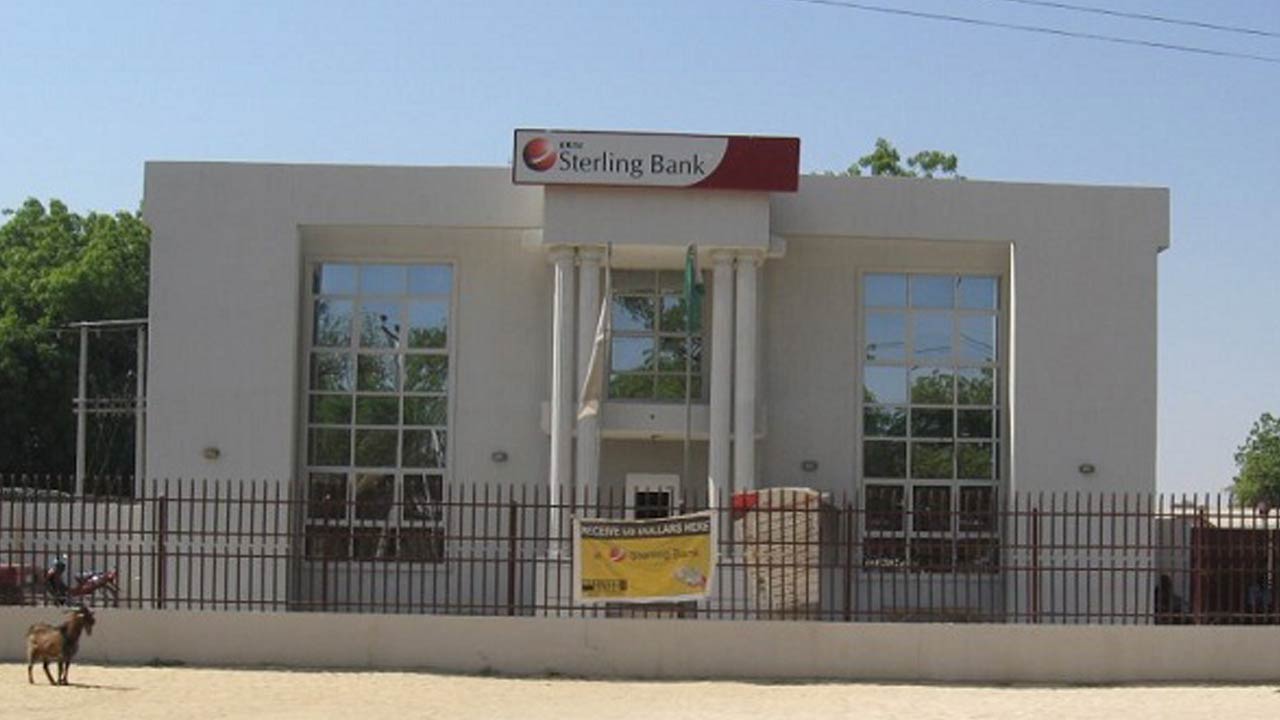Business
BoI on the up for SMEs
Published
10 years agoon
By
Olu Emmanuel
BoI’s new CEO Waheed Olagunju and his team are tweaking Nigeria’s foremost development bank for the SMEs. Now it’s got cracking as the wealth-spinner it’s created to be
By SEGUN ELIJAH
IN couple months, Okey Ogunjiofor’s flick, Queen Aminat, will hit the Nollywood public. After thanking his muse for making the epic a wow, the filmmaker will also thank something else: the Bank of Industry which loaned him N50 million to bankroll the work. BoI is Nigeria’s foremost development financing institution, and one of Africa’s top seven.
Prudential Standards, Guidelines and Rating System (PSGRS) of the Association of African Development Finance Institutions (AADFI) ranked no fewer than 46 of such institutions on the continent in 2015. And BoI made the topmost cut for, among other reasons, its cocktail of innovations: bringing small and medium scale enterprise funding to the like of Ogunjiofor with its NollyFund; helping the small businesses in the gender-driven rag-trade with the N1 billion Fashionfund; and motivating the pushy ones among the youth with the N10 billion Youth Empowerment Scheme.
For those in showbiz, there are eight tinsel projects Nollyfund has floated so far, including Film House, a cinema enterprise another entrepreneur Kenneth Mkparu promoted. Others are Silverbird Cinema (digitization), Viva Cinema, and Ozone Cinema. The BoI has also funded the most expensive—and among the most competitive movie in Nigeria: The Half of a Yellow Sun. It gulped N1.27 billion.
“We supported these projects without any collateral,” said BoI’s Group Creative Director Uche Nwuka while receiving the Creative Award from the British Council on behalf of the bank last year.
Giving unsecured facilities in an industry where most players are loan sharks seems a donkey act—especially in an economy like Nigeria’s. But it’s not. It’s just a radical shift in approach, and a deeper appreciation of the SME as the biggest driver of any economy. For starters, that’s why the BoI was fashioned out of the Nigeria Industrial Development Bank in 2001.
Apart from not arm-twisting small entrepreneurs for collateral, the bank’s management, under its current CEO Waheed Olagunju, is pouring all it’s got on the small business owners. As a policy, the bank commits 85 percent of its resources to funding SMEs only. Even the titans that get the remaining 15 percent still have a string attached: they must tag along the wee folks in their industries. And the interest rate is one-digit.“Our strong resolve is to rapidly increase the volume of loans to MSMEs with very high viability prospects,” Olagunju said when he was executive director of SME.
The bank isn’t just doting for the heck of it. The commitment is some kind of long-drawn-out crusade development watchers have come to identify BoI with. “It plans to double its total loan book size over the next four years and to increase its MSME portfolio by 14 times its currently modest size,”Moody’s Investors Service emphasized in its recent rating (Ba3) of the bank. About half of these future loans, the report noted, will be guaranteed by a commercial bank.
Analysts say it’s a show of strength. It smacks of practicable risk assessment, too. Which is why the deadbeats among the borrowers are not many. As of last November,Bo1’s reported non-performing loan ratio (NPLs) was 4.6 percent, Moody’s noted in the report. “Low NPLs are partly explained by the exposures relating to the CBN intervention fund, which are guaranteed by commercial banks,” the rating body said.And that figure actuallystacks up—compared to other development banks’ exposures.
It’s a whole lot of efforts the bank is sinking in, analysts believe. But a sub-sector like the SME, catering to over 30 million jobs, can’t get enough of BoI’s boost. Certainly, no. According to the 2012 report of the Enterprise Baseline Survey, there are more than 17 million small and medium brick-and-mortar businesses currently registered in Nigeria—up from around 9 million in 2009. And they contributed about 50 percent of the GDP. Of all the entrepreneurial ventures in Nigeria, the SME covers 75 percent, though 85 percent of them are medium enterprises while small businesses take 15 percent.
The statistics keeps spiralling by the year. Likewise the funding needs. In the last 14 years, said Olagunju, BoI has granted N890 billion in loan—to just 4000 borrowers. The CBN recently put the funding gap at N9.6 trillion—when by way of intervention the federal government has so far shelled out—for SME alone– over N0.5 trillion. But for BoI, the workings are all manageable.
Apart from multiplying its own loan size yearly till 2018, BoI has been helping states focus and manage their resources on SME development. Its entrepreneurial boot camps have been running across many states for two years now. Cooperative groups springing up after the training are getting loans to cut their teeth in entrepreneurship. Kaduna and Katsina, for instance, have got N2 billion and N1 billion respectively as seed fund for their micropreneurs. The bank is also encouraging the state governments to set up industrial parks for localising industries.
The UNDP, UNIDO, AfDB, SMEDAN, NASSI, NASME, MAN, Dangote Foundation, and other development agencies, home and abroad, are working with BoI. The working relations, by way of advocacy, will make funding of SME easier—among other benefits. It has brought on 10 SME-friendly commercial banks like Fidelity, UBA, First Bank, and others to manage various intervention funds.
All these collaborations not only benefit SMEs in Nigeria, they test the bank’s competence, too. No doubting its grasp of quality delivery, though.
BoI is the only ISO 9001: 2008 Quality Management Systems-certified development financial institution in Nigeria. It’sa recognition of global best practices DQS Management Systems Nigeria Limited awarded BoI in 2014. “It was a very rigorous and painstaking process involving every BOI staff and director,” said BoI’s former CEO Rasheed Olaoluwa during the award. “We instituted a bank-wide set of systems and procedures that will ensure efficient utilisation of resources and quality service delivery, thereby promoting optimal performance on all fronts.”That means a lot: a customer service department; a banking app; an SME app; automation; online loan application portal; and a loan tracker.
In effect, all this raises the bar for quality management system. “And it provides the necessary framework to improve operational efficiency, minimise risk, and optimise opportunities,” Olaoluwa added, not under-estimating his staff commitment.
The bank has a dedicated staff and management that are ready to go all out in serving Nigerians. They have been sacrificing more of their times, late evenings, and sometimes, weekends. Their capabilities and experience is not in question, either.
On top of the food chain now, Olagunju, himself, has grossed in 15 years of experience in capital and human assets management at BoI. Having notched 25 years in development banking, the acting CEO has actually seen it all— as one of those that midwifed BoI from the NDIB in 2001, and as its executive director (business development) 11 years later. He even stood in briefly for the CEO in 2014. A man of many parts, Olagunju was serving on the side as company secretary and general manager for strategy and corporate communications in between those years.
So far, the bank has undergone three strategic makeovers: in 2001, when it was founded; in 2005 when a major diagnosis of the bank was conducted; and in 2014 when it was upgraded to world standard. And all have had Olagunju’s fingerprints stamped on them.
As BoI’s five-year plan unfolds, with a lot more emphasis on devoting a bigger chunk of the bank’s risk asset to SMEs, a touch of experience and smarter risk management will sure deliver the goods. And you get both rolled up into one in Olagunju, a Queens University, Canada-certified investment and risk expert.
You may like


Political turmoil won’t distract us from governance – Fubara


CACOL urges EFCC to probe BOI over unethical practices


BoI, finance ministry sign Mou to recover NERFUND’s N17.5bn loan


Frustrated BoI loan applicants’ give insights, seek bank probe


BoI in court over alleged mismanagement of investment


Sterling Bank, BOI partner on N140bn for SMEs
Trending

 Entertainment5 days ago
Entertainment5 days agoSimi addresses resurfaced 2012 tweets amid online backlash

 Health1 week ago
Health1 week agoSCFN, LUTH introduce bone marrow transplants as curative treatment for sickle cell

 Health4 days ago
Health4 days agoDeclassified CIA memo explored concealing mind-control drugs in vaccines

 Football1 week ago
Football1 week agoHarry Kane nets brace as Bayern edge Frankfurt 3–2 to go nine points clear

 Football1 week ago
Football1 week agoLate Flemming header stuns Chelsea as Burnley snatch 1–1 draw at Stamford Bridge

 Crime4 days ago
Crime4 days agoSenior police officers faces retirement after Disu’s appointment as acting IGP

 Education6 days ago
Education6 days agoPeter Obi urges JAMB to address registration challenges ahead of exams

 Crime1 week ago
Crime1 week agoTwo killed, seven injured in early-morning shooting in Richmond’s Shockoe Bottom

